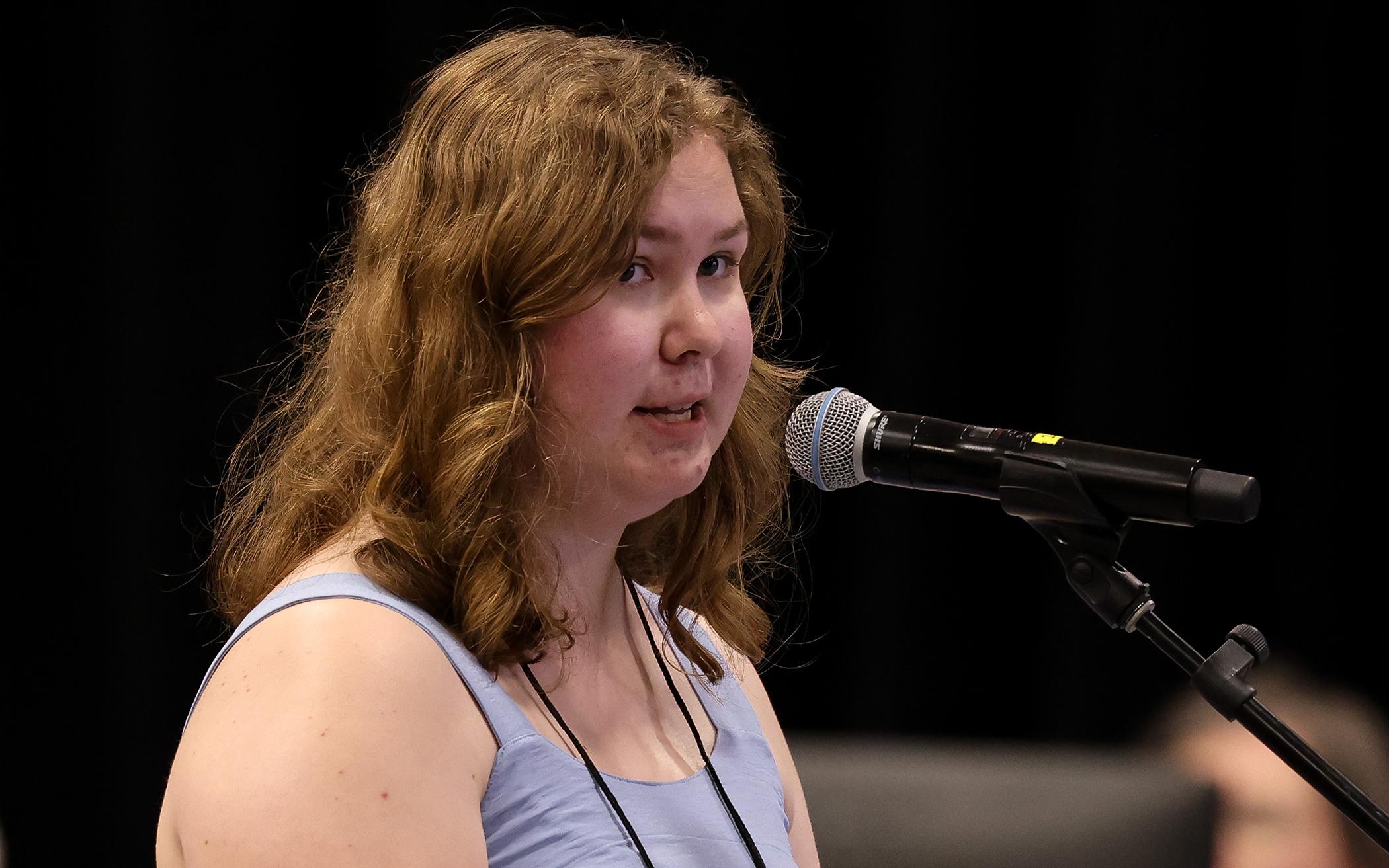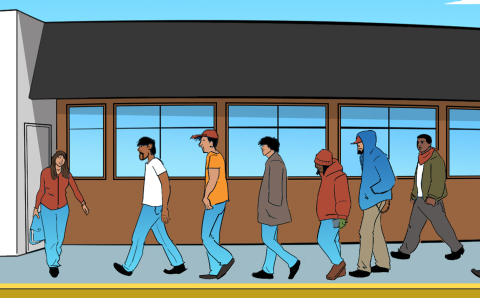Somewhat divided on the matter, Synod 2025 decided 91 to 67, with two abstentions, to accept six recommendations for the operation of digital ministries and virtual churches within the Christian Reformed Church in North America and concluded the work of the Virtual Church Task Force, established by Synod 2023 to respond to a request to “declare that a virtual church is not a church.”
Synod is the annual general assembly of the CRCNA. It is meeting June 13-19 in Ancaster, Ont.
Richard Grift, Classis Toronto, reporter for the committee that presented the recommendations, said, “We’re not ready to declare one way or another” if synod is for or against virtual churches.
Synod acknowledged that while it’s preferable for churches to gather in person, “there should be room for intentional and ongoing experimentation within the CRCNA for digital ministry.” It encouraged continued “study about the legitimacy of virtual churches including especially how they might fulfill the marks of the true church in their context.”
Within that experimentation and study, synod encouraged digital ministries to network with each other and when applicable “to move those they are serving toward gathering as a hybrid or in-person church.” Synod also instructed those experimenting with virtual-church plants, along with their parent church(es), “to provide a clear ministry plan to their classis, including especially how they plan to fulfill the marks of the true church in their context and how they plan to address the importance of embodiment and in-person gatherings.”
Tim Sheridan, church planting leader with Resonate Global Mission, who served on the Virtual Church Task Force said, “We are living in a time of accelerated technological innovation and disruption.” He added, “In times like this, historical memory and lessons would tell us we are tempted in two directions: one to catastrophize and get to dystopian thinking” and on the other hand, “we are tempted by utopian thinking.” Without tipping to either extreme, Sheridan said, “There seems to be a lot of wisdom to keep space open for experimentation, innovation, and learning.”
Paul Vander Klay, Central California, supported the recommendations, saying he’s been surprised by his own online experimentation over the past eight years. He said, “500-1,000 people online listen to the rough draft for my Sunday sermon that 40-50 people will listen to” in person, and 30% of his congregation’s budget comes from unsolicited online donations. He said, “Every time I think this really can’t happen on the internet, I get surprised.”
Jeffery Scripps, Classis Georgetown, said, “We can all appreciate the value of experimenting and doing things in the digital world, but I really think we can close the door on saying an online-only church can be a real church.”
Jordan Nickell, Classis Grandville, also spoke for that position. He said, “I see this as a confessional issue. We confess the ‘communion’ of the saints. To communicate is to exchange information,” but “to commune is to exchange presence.” He said, “We can’t be present in soul only, we have to be present in both body and soul.” He wanted synod to consider the door closed, “and we need to find the onus in beginning to open it (if there is a real need), rather than seeing ‘the door open’ and finding the onus to close it.”
Cedric Parsels, Classis Illiana, was also against the decision. He said he did not believe a church that meets exclusively online “can meet the marks of a true church” noting the pure administration of the sacraments. The Lord’s supper, he said, “requires there’s a physical passing of the bread and the wine to the assembly.”
Grift agreed that Parsels made valid points, saying that “more studies are needed” but that he didn’t think synod was ready to make a decision today.
Philip Bergman, Classis North Cascades, said, “I believe we absolutely can do church online and it’s inevitable,” and recalled how many congregations lived through periods of not meeting in-person during pandemic lockdowns. “We had to have workarounds—that could work for an online church,” Bergman said.
Grace Burns, young adult representative, said, “Believers must see themselves not as believers who go to church, but people whose primary identity is to be the church.” She said there have always been people unable to physically join church and that she believes “the option to explore faith without having to enter a physical space has been a blessing for many who face trepidation” over leaving their homes for many reasons.
Michael Nanninga, Classis Quinte, noted how the task force was initiated after a request “to claim that it’s not possible to have a virtual church” but that the task force came back and said, “While not preferable, we’re not in a position to say not possible.” He respected that position.
In addition to the other recommendations, Synod 2025 directed the Office of General Secretary to work with denominational agencies to be a resource to classes and churches that are considering how best to support virtual-church experiments.
After the vote passed, 17 negative votes were registered. (The office of synodical services could not confirm this number at this time.)
Synod 2025, the annual general assembly of the Christian Reformed Church in North America, is meeting June 13-19 on the campus of Redeemer University in Ancaster, Ont. Find daily coverage from The Banner at TheBanner.org/synod. Visit crcna.org/synod for the agenda, advisory reports, recordings of plenary sessions, and to subscribe to the daily Synod News email.
About the Author
With a passion for words and creativity, Kristen Parker has been a freelance news correspondent for The Banner since 2019. She became the communications coordinator for Canada with Christian Reformed Church Communications in 2025. Kristen and her husband Chris, enjoy running and thrift shopping. They attend Stratford CRC in Stratford, Ont.









